UCLA Dr. Allen and Charlotte Ginsburg Symposium in Precision Health
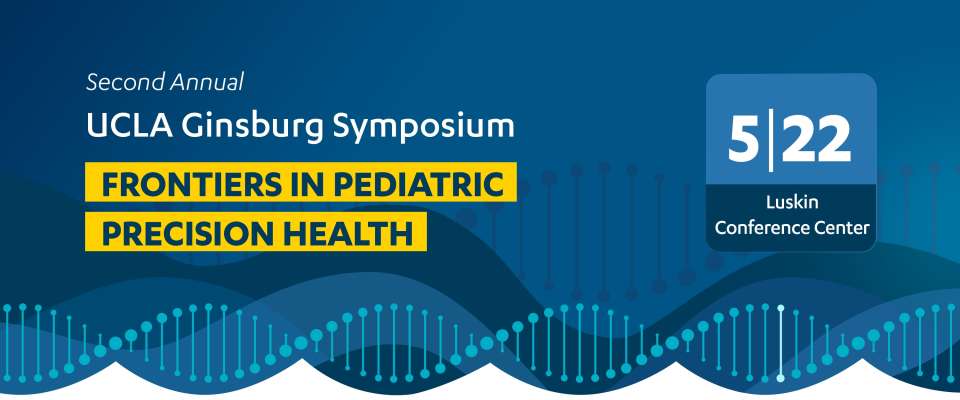
Event Information
The UCLA Institute for Precision Health hosts the second Annual Dr. Allen and Charlotte Ginsburg (Ginsburg) Symposium in Precision Health: Frontiers in Pediatric Precision Health on May 22, 2023 at the UCLA Meyer and Renee Luskin Conference Center. This full-day symposium highlights some of the unique challenges in pediatric onset diseases in relation to precision health diagnostics and therapeutics.
The symposium includes keynote presentations, panel discussions, posters, and oral presentations. A catered reception and awards ceremony follows. Students, postdocs, faculty, and staff from all campuses are invited to attend.
All graduate students and postdoctoral fellows are encouraged to submit an abstract for the poster session. Three abstracts are selected for oral presentations during a lightning round. Those not selected for the lightning round are still given the opportunity to present a poster during the symposium lunch and cocktail hours.
Keynote Speaker
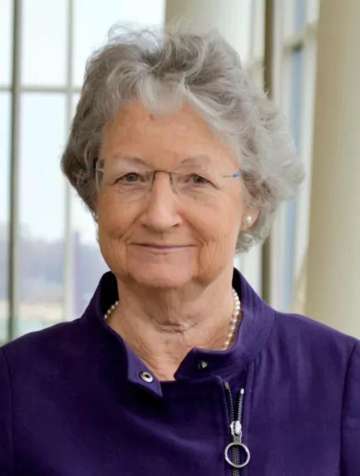
Katherine High, MD
Turning Genes into Medicines: Highlights and Hurdles in the Development of Gene Therapy for Genetic Disease
Dr. Katherine High has enjoyed a 30+ year career in internal medicine, hematology, molecular genetics, and gene therapy. She served as the inaugural director of a Center at The Children’s Hospital of Philadelphia (CHOP) devoted to development of cell and gene therapies for diseases that affect the pediatric population. At CHOP she was also an Investigator of the Howard Hughes Medical Institute. Dr. High served a 5-year term on the U.S. FDA Advisory Committee on Cell, Tissue and Gene Therapies and is a past president of the American Society of Gene & Cell Therapy. In 2013, she co-founded Spark Therapeutics where she served as President, CSO, and member of the Board of Directors until Dec 2019 when Spark was acquired by Roche. Subsequently Dr. High left the organization, and in January 2021 joined AskBio, a wholly owned subsidiary of Bayer as President of Therapeutics and member of the Board of Directors. In December 2022, she left AskBio to become a Visiting Professor at Rockefeller University. Dr. High received her bachelor’s degree in chemistry from Harvard University, an MD from the University of North Carolina School of Medicine, a business certification from the University of North Carolina Business School’s Management Institute for Hospital Administrators and a master’s degree from the University of Pennsylvania. She is an elected member of the National Academy of Medicine, the American Academy of Arts and Sciences, the faculty of Pharmaceutical Medicine of the Royal College of Physicians (London), and the National Academy of Sciences.
Speakers
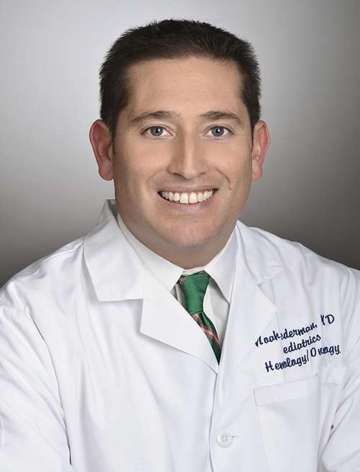
Noah C. Federman, MD
NTRK Fusion Cancers in Children: A model for precision oncology
Dr. Noah Federman is the Director of the Pediatric Bone and Soft Tissue Sarcoma Program at UCLA, part of the UCLA Sarcoma Program and UCLA Health Jonsson Comprehensive Cancer Center. Dr. Federman specializes in treating children, adolescents and young adults with these aggressive cancers. He runs an incredibly comprehensive and multidisciplinary program involving pediatric and medical oncologists, radiation oncologists, orthopedic oncology surgeons, musculoskeletal radiologists and pathologists, nuclear medicine specialists, physical therapists and prosthetic specialists. Dr. Federman also specializes in conducting clinical trials and leads an experienced clinical research team devoted to providing access to clinical trials for children with refractory, recurrent and metastatic bone and soft tissue cancers.
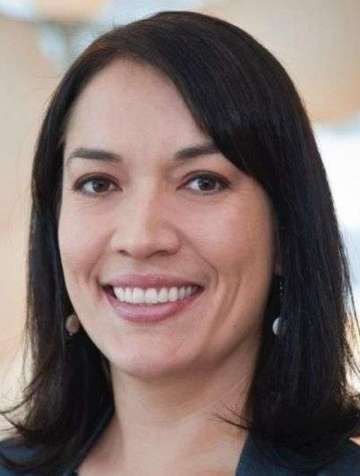
Nanibaa' Garrison, PhD
Unresolved Issues about Genetics and Communities: Break Barriers for Improved Access
Nanibaa’ Garrison (Navajo), Ph.D. is an Associate Professor at the University of California, Los Angeles. She has appointments in the Institute for Society and Genetics, the Institute for Precision Health, and the Division of General Internal Medicine & Health Services Research. Dr. Garrison earned her Ph.D. in genetics at Stanford University, and completed a postdoctoral fellowship in bioethics at the Stanford Center for Biomedical Ethics and the Center for Integration of Research on Genetics & Ethics at Stanford University. Prior to coming to UCLA, Dr. Garrison was an Assistant Professor at Vanderbilt University, University of Washington and Seattle Children’s Research Institute. Dr. Garrison is the recipient of an NIH K01 career development award to explore perspectives of tribal leaders, physicians, scientists, and policy makers on genetic research with tribes. Her research focuses on the ethical, social, and cultural implications of genetic and genomic research in Indigenous communities. Using community-based research approaches, she engages with tribal communities to develop policies and guidance for tribes.
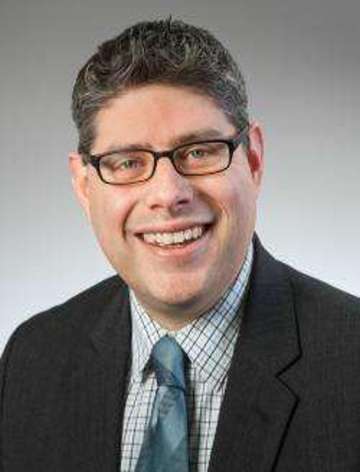
Aaron Goldenberg, PhD, MA, MPH
Unresolved Issues in Gene Targeted Therapies in Pediatrics: Striving for Ethics and Equity
Aaron Goldenberg, PhD, MA, MPH is Professor, Research Director, and Vice Chair in the Department of Bioethics & Medical Humanities at Case Western Reserve University School of Medicine. Dr. Goldenberg is also the Co-Director of the Center for Genetic Research Ethics and Law, a NIH Center of Excellence in ELSI Research and Co-Director of the Genetic Counseling & Bioethics dual degree program.
Dr. Goldenberg received his bachelor's degree from Michigan State University; his MPH from University of Michigan and earned his PhD in Bioethics at Case Western Reserve University. Since joining the faculty at Case Western Reserve University, Dr. Goldenberg's work focuses on the ethical, legal, and social implications of advances in genomics within clinical and public health settings. His research program has been grounded by a number of major project areas, including: 1) ethical implications of expanding newborn screening programs; 2) storage and use of perinatal and pediatric biological specimens for future research; and 3) the implications of genomics for communities experiencing health disparities. In addition to these scholarly initiatives, Dr. Goldenberg is Director for Ethics, Policy and Practice for the National Newborn Screening Clearinghouse, also known as Baby's First Test. He is a member of the Ethics and Legal Workgroup for the Newborn Screening Translational Research Network and the Legal and Legislative Workgroup for the American Public Health Laboratory Association.
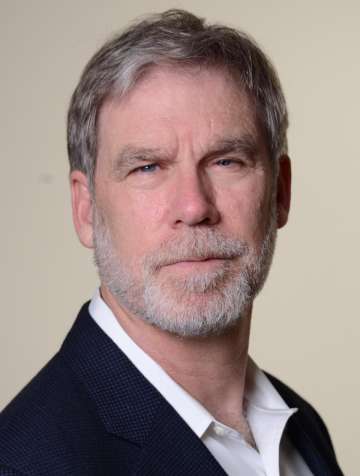
Stanley F. Nelson, MD
Advances in Gene Therapy for Patients with Duchenne Muscular Dystrophy
Stanley F. Nelson, MD is the Dr. Allen and Charlotte Ginsburg Endowed Chair in Translational Genomics, and Distinguished Professor of Pathology and Laboratory Medicine, Human Genetics, Pediatrics, Neurology, and Psychiatry in the David Geffen School of Medicine at UCLA. He is a physician scientist who develops and implements genomic tools to improve molecular diagnostics for rare diseases and performs translational research to treat Duchenne muscular dystrophy. His work expanded genomic tool access on campus, implemented new approaches to improve rare disease diagnosis that has led to dozens of gene/disease discoveries, and improve clinical trial work for Duchenne. He graduated from Duke University School of Medicine, trained Pediatric Hematology-Oncology at UCSF, and completed postdoctoral fellowship at Stanford University. He is Founding Co-Director of the Center for Duchenne Muscular Dystrophy, and is the director of the California Center for Rare Diseases within the UCLA Institute of Precision Health.
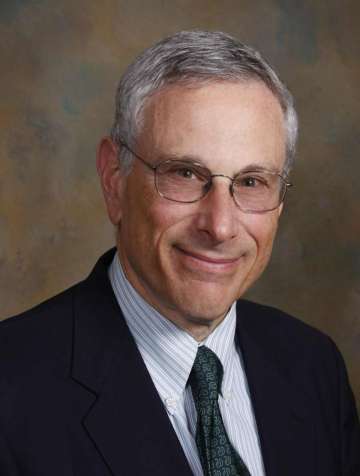
Robert Nussbaum, MD
New Approaches to Variant Classification and Interpretation
Robert L. Nussbaum, MD is the Chief Medical Officer of Invitae. He is board certified in internal medicine, clinical genetics and clinical molecular genetics, and is a Fellow of the American College of Physicians and the American College of Medical Genetics and Genomics. From 2006-2015, he was the Holly Smith Professor of Medicine at UCSF, and Chief of the Division of Genomic Medicine. Before that he served in the Division of Intramural Research of the National Human Genome Research Institute, NIH, and, before NIH, was a Professor of Human Genetics, Pediatrics and Medicine at the University of Pennsylvania and an Associate Investigator of the Howard Hughes Medical Institute. He received an M.D. in 1975 from the Harvard-MIT Joint Program in Health Science and Technology, internal medicine training at Barnes Hospital/Washington University (1975-1978), and genetics training at Baylor College of Medicine (1978-1981). He is the co-author of 277 peer- reviewed publications in basic and applied human genetics as well as numerous commentaries, editorials, and textbook chapters. He was elected to the National Academy of Medicine (IOM) in 2004 and the American Academy of Arts and Sciences in 2015. Dr. Nussbaum served as a member of the Board of Directors and President of the American Society of Human Genetics, on the Board of Directors of the American Board of Medical Genetics and Genomics, and was a founding fellow and a member of the Board of Directors of the American College of Medical Genetics and Genomics.
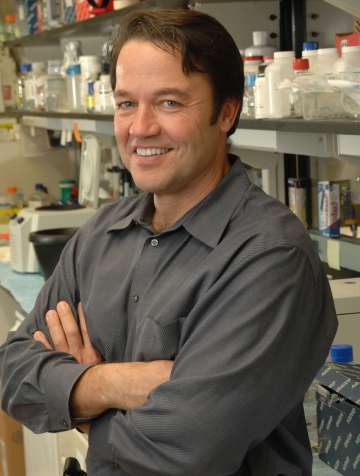
John Tisdale, MD
Toward Molecular Cures for the First Molecular Disease, Cell, and Gene Therapies for Sickle Cell Disease
John Tisdale received his medical degree from the Medical University of South Carolina in Charleston after obtaining his B.A. in Chemistry from the College of Charleston. He completed an internal medicine and chief residency at Vanderbilt University Medical Center in Nashville and then trained in hematology in the Hematology Branch, National Heart, Lung and Blood Institute (NHLBI), where he served as a postdoctoral fellow. He joined the Molecular and Clinical Hematology Branch of NHLBI in 1998 and is now the Chief of the Cellular and Molecular Therapeutics Branch. In 2020 the College of Charleston recognized Dr. Tisdale as one of their Top 25 History makers in honor of the schools 250-year anniversary and was Samuel J. Heyman Service to America Medal finalist. He was recently elected to the American Society for Clinical Investigation and is a member of the American Society of Hematology. Dr. Tisdale’s research and clinical work centers on sickle cell disease. His group focuses on developing curative strategies for sickle cell disease through transplantation of allogeneic or genetically modified autologous bone marrow stem cells. He has published over 200 first- and co-author publications.
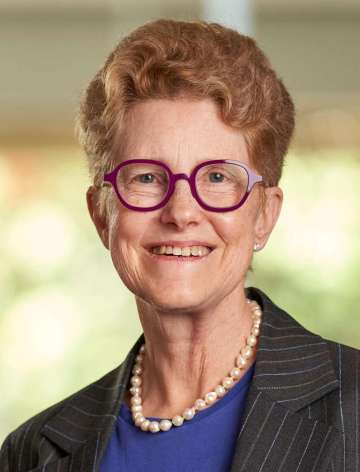
Ellen Wright Clayton, MD, JD
Unresolved Issues about Genetic Testing and Screening in Children: Who Decides What and Why
Ellen Wright Clayton is the Craig-Weaver Professor of Pediatrics, Professor of Health Policy, and Co-Founder of the Center for Biomedical Ethics and Society at Vanderbilt University Medical Center and Professor of Law in Vanderbilt’s Law School. Informed by her twenty-year experience as a general pediatrician, she has focused for many years on ethical, legal, and social issues presented by conducting research, particularly in genetics and genomics and more recently in artificial intelligence and machine learning, and the impact of translating these advances in clinical care and the broader society. Her work is truly transdisciplinary, combining empirical, normative, and legal analytic methods to address real-world challenges, and she is passionate about collaborating with learners in these projects. She is currently co-PI of VUMC’s highly transdisciplinary CEER on genomic privacy and identity, GetPreCiSe, and recently completed work as co-PI of LawSeqSM, which created in-depth analyses and made recommendations regarding several issues confronting genomics, including privacy. She is an elected member of the National Academy of Medicine where she has held numerous leadership positions and currently serves as Co-Chair of Report Review for the National Academies.